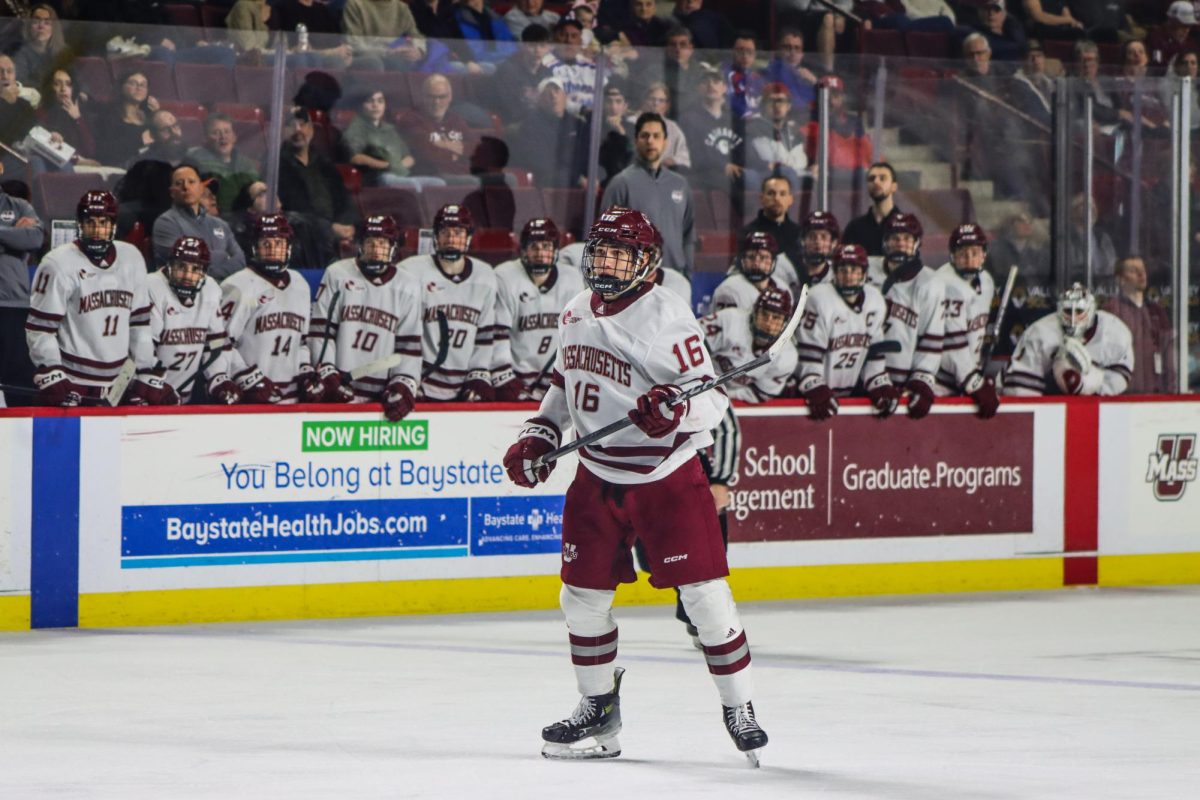When the news first broke about UMass joining the Mid-American Conference, it was reported that it would be moving into the conference in “all sports.” This led to a brief frenzy on Twitter/X of speculation about what would happen to the hockey program, which is not a sport that the MAC offers. The confusion was quickly cleared when it was confirmed that UMass would remain in Hockey East, but the prospect of hockey in the MAC seems interesting to think about, wondering what the conference would look like and how MAC member schools could benefit from adding Division I hockey programs.
The Midwest is a mix of states that include very traditional hockey states like Minnesota, Michigan, Wisconsin and North Dakota, but states like Ohio, Illinois, Indiana and Pennsylvania have fast-growing hockey cultures and have documented interest in hockey in their major markets where pro teams exist in the NHL, AHL and ECHL.
Three MAC schools already have DI programs: Western Michigan, Bowling Green and Miami of Ohio. Western Michigan and Miami (OH) compete in the ultra-competitive NCHC, while Bowling Green is a member of the CCHA. These programs are already successful at the DI level and if the MAC decided to create a hockey conference and could sway these schools to jump ship from their current conferences, it could help establish the conference as a competitive one as soon as it formed.
UMass could be a part of this seventh DI NCAA hockey conference if it jumped ship from Hockey East. Similar to what the basketball programs will face with this movement, the competition level may go down but the opportunity to dominate and battle for conference championships and NCAA tournament auto-bids would exist every year, as it would take a few years for most of the schools to establish themselves as legitimate threats, as it does for any program that is in its infant stages.
UMass could also play an incredibly strong out-of-conference schedule against its current conference foes that would improve its case for making the NCAA tournament every year.
Each current member school of the MAC outside of Western Michigan, Bowling Green and Miami (OH) has a hockey program at the club level in the ACHA (American Club Hockey Association) except for Ball State. There is interest in the sport at these schools, and the ACHA is a very competitive conference that rivals in both level of play and popularity with a lot of DIII schools.
The fairly centralized location of the 12 (soon to be 13) member schools would make for reasonable travel and unique rivalries as we see in Hockey East between the Boston schools, or in the Big 10 with Michigan, Michigan State and Ohio State. We would see all four directional Michigan schools at the DI level, making for automatic built-in rivalries. All these schools would have the ability to play out of conference schedules against marquee competition from the Big 10, NCHC and CCHA which are all within a couple of states.
The NCAA has added new DI hockey programs almost every season in the last few years including Stonehill College, Lindenwood University and Long Island University. With the growing popularity as a sport in general, the MAC could be on the front lines of the biggest time of growth for hockey in decades. New TV deals with ESPN are right there to be capitalized on as an added bonus.
Although some of these schools may not have dedicated rinks to play at right now, there are more than enough rinks in and around the communities where these colleges sit to tide them over for a few years as the conference grows. Arizona State is a perfect example of a school that exists in a non-traditional hockey market that battled through years of playing at a small rink until its program garnered enough popularity and attention to justify building Mullet Arena as a permanent rink.
There would surely be difficulties in implementing hockey in the MAC; some of these schools have comparatively small athletic departments that would be hard-pressed to add such a demanding sport at the DI level. But hockey is such a fast-growing sport that already has documented popularity in the region that sooner than later, the programs would become profitable if they are implemented correctly and given time to develop.
As of right now, there is no indication that the MAC will ever add hockey as a sport, but if they wanted to, there is a path to do it.
Matt Skillings can be reached at [email protected] and followed on Twitter @matt_skillings.














